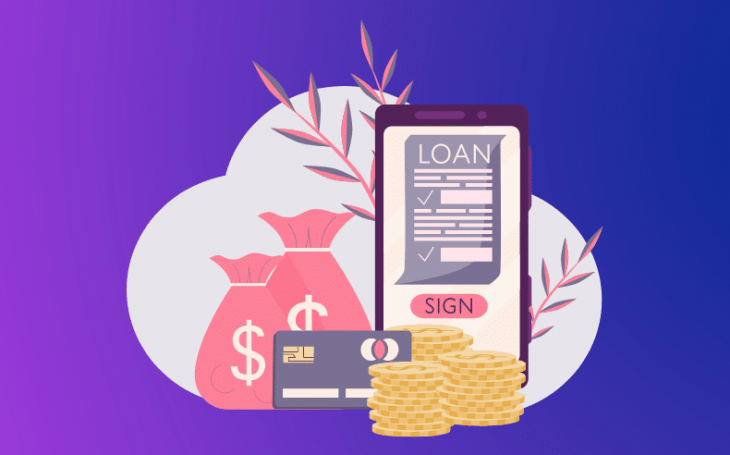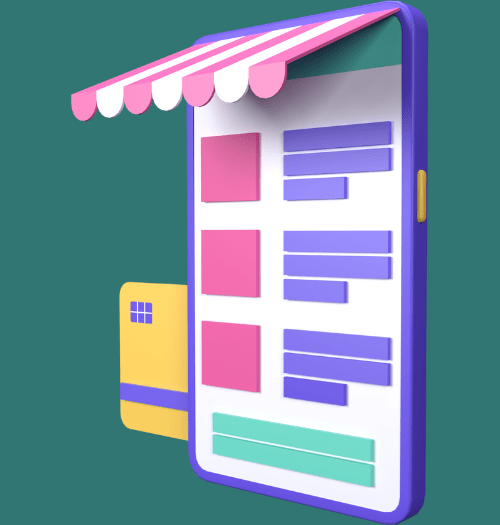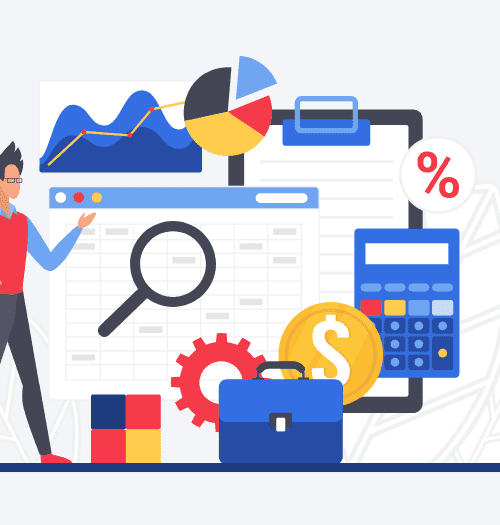Loan Origination is when a borrower applies for a loan, and a lender, after processing, lends the loan amount to the borrower. The borrower can be an individual, a business, or a corporation, with the lenders being the banks, NBFCs, MFIs or Fintechs.
Most financial institutions are used to lending in the traditional method, and that method is generally cumbersome. That’s why it takes such a long time to process a loan application since manual work involves lots and lots of paperwork in every stage, thereby increasing the loan’s processing, disbursement and recovery time. But, with the evolving “technology in finance”, we are glad to see more and more digitisation in the loan origination process. This led to the birth of a digital loan origination system. It plays a way more important role than most traditional lenders realise. Simply, we can say taking a loan origination process online.
It helps
- mitigate inefficiencies,
- decrease operating costs and cost of customer acquisition,
- improve customer experience and,
- most importantly, save a lot of time.
Loan disbursement is done within minutes, even using loan origination software. That’s why digital loan origination software is becoming very popular in the lending industry. In fact, the market for loan origination software is anticipated to grow from an estimated USD 4662.2 million in 2022 to USD 10670 million by 2028, at a CAGR of 14.8% between 2023 and 2028. Interesting, isn’t it? So, let us dive into detail on why the loan origination system is so relevant for financial institutions.
Improve Customer Experience
In traditional lending, for customers, it means slow turnaround and low transparency. A survey by Federal Reserve in 2016 stated that 45% complained about long delays in credit decisions, and 42% found the application process complex. On the other hand, online lenders with LOS have outperformed traditional lenders and improved customer experience. Only 17% said that they found delays in credit decisions but not much compared to traditional ones, and only 26% found the application process difficult.
Upscale Lending Model and Expansion in Customer Base
With traditional lending, a lender has a specific target market in mind. For instance, if he offers personal loans, his entire business strategy revolves around helping customers who require personal loans to meet their financial obligations. However, he can easily expand his business model and look to implement more loan products like vehicle loans, home loans, business loans, etc., using a loan origination system in digital lending. In a short amount of time, he can introduce his new products to the market and grow his clientele.
Lower Time to Market
When a lender wants to digitise his lending process, he must integrate a huge number of different APIs into his system for every stage. Additionally, there are numerous vendors available on the market for each API. Hence, lending consequently becomes time-consuming and heavily dependent on technology. However, a one-stop digital lending provider like CloudBankin has all the APIs built into every stage of the lending process. Therefore, a lender doesn’t have to put in additional effort to pull in various APIs. As a result, he can quickly introduce his lending product and cut down on his time to market.
Reduce Cost Per Loan Application
Utilizing a loan origination system typically lowers the cost per loan application. For instance, the available cost (such as gasoline, photocopy, etc.) became the base price for a customer’s loan per application cost, which was around INR 500, for one of our customers serving a specific location. However, because everything is done online, our LOS is able to lower that base cost per loan application to between INR 100 and INR 150. This is only possible if the API is integrated into the application, as there is no reason to charge customers based on their locations.
Expand Into More Geographical Areas
Assume you are a traditional NBFC seeking to expand your lending operations and offer loans to borrowers in a new area. Restarting the process entails additional paperwork, physical branches, operational costs, lost time, human activity, etc. However, a loan origination system allows you the convenience of quickly disbursing loans at a new location. What makes it possible? Without requiring a physical branch, you simply need to integrate the new location pincode into the system and begin disbursing loans. Additionally, it will recommend where you ought to start. It requires little to no paperwork, doesn’t require a physical location, costs less to operate, saves time, and doesn’t require hiring additional staff. As a result, loan origination software offers a simple expansion strategy to disburse loans in a matter of minutes and quickly meet people’s extra credit needs in various locations.
Reduce Human Intervention
Utilizing a loan origination system automates the entire lending process. It can gather borrower information from a range of sources. To verify loan applications, you don’t need a loan officer or field agent. You can minimise human intervention when you incorporate loan origination software into your lending process. The American Bankers Association asserts that using less human interaction and more automated, quicker services results in increased productivity, more closed loans, and higher revenue per loan. Take yet another example. The amount of loans that lending institutions can approve typically has a limit. A bank manager has the authority to approve a loan application for, say, INR 50,000. However, if it is higher (let’s say INR 1.5 lakh), the decision must first be approved by the head office. For that, the bank manager must first send an email before mailing the borrowers’ documentation. This requires a lot more human interaction and wastes a lot of time on approval. But, a loan origination system directly requests consent from the authorised parties to lessen this challenge.
Lower Frauds
The likelihood of frauds, such as data misuse or misinterpretation, occurring when using a loan origination system is slim. It is now much simpler to verify a borrower’s data. For instance, a loan origination system simply gathers all the data and validates it from the c-KYC portal by entering a PAN number and DOB. Additional layers of verification, such as face matches and liveliness checks (where the borrower’s photo is compared to the c-KYC photo to confirm that they are who they say ), can be added. So, this is how you can lessen the likelihood that fraud will occur during the lending process.
Make Data-driven Decisions
Consider that you are required to create a Credit Analysis Memorandum (CAM) report. You have all the information you need, including bank statements, public records, past loan histories, credit scores, loan amounts, interest rates, and loan terms. Now, to finish the report, you must manually enter those data into an excel file and evaluate each parameter separately. This entire process is so time-consuming and tedious. However, you won’t have to worry about that if you use a digital system. It gathers information for you from various sources, and the credit rule engine evaluates it to your policies. It then generates a final result so you can choose whether or not to give the borrower a loan. A LOS thus makes it incredibly simple for you to make decisions based on data.
Your Borrowers Can Take Loans Anytime, Anywhere, Any-device
Borrowers’ inability to independently apply for a loan is their main problem. A loan origination system offers lenders the convenience of allowing their borrowers to apply for loans from any location, at any time, and using any device, which helps to mitigate this problem.
Reduce Operational Costs
Operating costs for traditional lenders average about 6%, compared to 2% for online lenders. Automation streamlines the underwriting process, allowing financial institutions to make more loans and provide more products. Borrowers are getting their money and loan approvals faster. In the end, the points above make it clear that a loan origination system lowers a lender’s operational costs by removing manual processes (physical data collection, verification, manual underwriting, loan agreements and signatures, etc.) and streamlining the loan origination procedure.
Parting Words
With digitisation in the loan origination process, financial companies are leveraging extensive usage of LOS software in their lending process. A platform like CloudBankin is giving NBFCs competitive advantages over those still using traditional lending. CloudBankin is a luxury for lenders today. It is a fully API-based digital lending software to handle the complete loan process and supports most loan products. A lender can easily onboard a borrower with automated (do-it-yourself) flow for the urban population and assisted (usually loan officers) flow for rural and semi-rural populations. Thus, it can be defined as taking an end-to-end lending journey online for lenders to efficiently onboard their borrowers. One of the most prominent advantages of the app is a lender can disburse a loan in under 10 minutes. So, leverage this opportunity, discover more benefits and tap into providing loans to your borrowers effortlessly and automatically with Cloudbankin!





